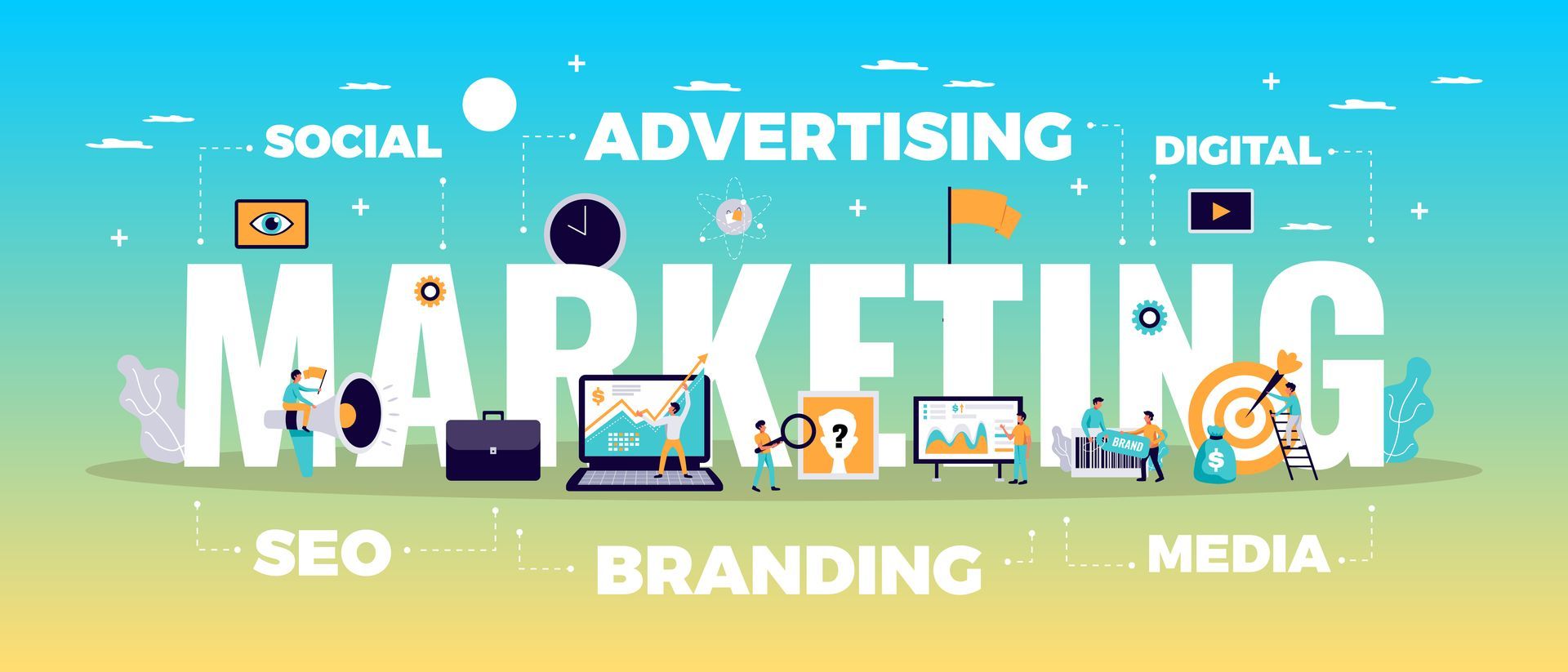Are Bookable Platforms The Quintessence Of Modern Travel Marketing?
With the travel industry evolving rapidly, you may find yourself wondering whether bookable platforms are indeed the cornerstone of contemporary travel marketing. These platforms not only streamline the booking process but also enhance the visibility of travel services, enabling more personalised customer experiences. As you explore these tools, consider how they can transform your marketing strategy and drive business growth. Recognising their potential could significantly impact your travel operations and connect you with a broader audience.
Key Takeaways:
- Convenience: Bookable platforms streamline the travel booking process, offering users the ability to search, compare, and book services easily.
- Integrated Marketing: These platforms utilise integrated marketing strategies, combining various channels to enhance visibility and engagement.
- Data Utilisation: Travel marketers can leverage data analytics from these platforms to better understand consumer behaviour and preferences.
- Personalisation: Bookable platforms enable more tailored offerings, allowing marketers to present personalised options based on user history and preferences.
- Global Reach: They provide access to a global audience, facilitating travel marketing across diverse markets and demographics.
The Rise of Bookable Platforms
Before the advent of bookable platforms, travellers relied heavily on traditional methods such as travel agencies and phone bookings. However, with the digital transformation, the landscape has significantly changed. Today, Five Reasons Why Travellers Prefer to Book Online illustrate why more people are choosing to book their trips with just a few clicks, enhancing convenience and accessibility at unprecedented levels.
Growth of Digital Travel Agencies
Growth in digital travel agencies (DTAs) has been phenomenal, reshaping how you plan and book your travels. Their online presence provides you with a vast array of options and competitive pricing, making it easier to tailor your trips to your specific needs, all from the comfort of your home.
Impact of User Experience on Booking
At the heart of successful bookable platforms lies the user experience. A seamless and intuitive interface can significantly enhance your booking process, ensuring you can navigate and make decisions effortlessly.
To maximise your engagement with these platforms, a focus on user-friendly design and efficient navigation is vital. If you encounter a complicated process or a frustrating experience, you may abandon your booking altogether. Conversely, platforms that prioritise clarity and accessibility not only save you time but also instil a sense of trust and satisfaction, ultimately leading to higher conversion rates. Hence, investing in a positive user experience is paramount for any travel marketing strategy.
The Role of Data Analytics in Travel Marketing
If you’re looking to elevate your travel marketing efforts, data analytics plays a pivotal role. By harnessing insights from consumer behaviour and market trends, you can craft strategies that enhance customer engagement and maximise your return on investment. With the right data, you can effectively tailor your offerings to meet the evolving expectations of travellers, ensuring they receive tailored experiences that resonate with their individual preferences.
Personalisation and Targeting
The ability to personalise your marketing efforts is increasingly important in attracting and retaining customers. By analysing data on traveller behaviour and preferences, you can target specific demographics more effectively. This means you can craft tailored messages and offers that truly resonate with your audience, improving your chances of conversion and fostering customer loyalty.
Predictive Analytics for Future Trends
Personalisation is not just about meeting current demands; it also involves anticipating future trends. Predictive analytics allows you to sift through vast amounts of data to identify patterns and forecast what travellers might desire next. This forward-thinking approach can help you stay ahead of the competition and adapt your marketing strategies accordingly.
Analytics empowers you to uncover emerging trends in the travel industry, enabling you to make data-driven decisions. By capturing and analysing past behaviours, you can project future travel patterns and preferences, often leading to enhanced marketing strategies. Moreover, this practice can save you significant resources by optimally aligning your offerings with anticipated demand. However, it is important to be vigilant about data security and privacy concerns as you navigate those newfound insights, to ensure that customer trust is maintained while you harness the benefits of predictive analytics.
Integrating Social Media with Travel Marketing
Now, navigating the landscape of travel marketing without social media is nearly impossible. You can leverage platforms like Instagram, Facebook, and Twitter to engage with potential customers, showcase stunning visuals of your destinations, and announce special promotions. This integration not only enhances your reach but also creates a dynamic space for interaction, allowing you to build relationships with your audience while positioning your brand as a thought leader in the travel industry.
Influencer Collaborations
Collaborations with influencers can significantly boost your travel marketing efforts. By partnering with individuals who have a dedicated following in the travel niche, you can tap into their audience, building trust and excitement around your offerings. Influencers can create authentic content that resonates with their followers, providing a personal touch that traditional marketing often lacks. This means that when you promote your brand through influencer relationships, you are not just selling a destination but communicating a lifestyle that draws attention and inspires travel.
User-Generated Content Strategies
After establishing a presence on social media, you can implement user-generated content strategies to enhance your marketing efforts. Engaging your audience to share their experiences encourages brand loyalty and creates a vibrant community around your offerings.
Social media thrives on authenticity and engagement. By showcasing user-generated content, you allow your audience to participate in the narrative of your brand. Encouraging customers to share their stories, photos, and experiences not only builds trust but also provides you with a wealth of content that highlights the versatility and appeal of your services. This strategy not only fosters a sense of community but also attracts potential customers who relate to genuine experiences rather than polished advertisements, ultimately driving more traffic and bookings for your business.
The Importance of Customer Reviews
Not only do customer reviews significantly influence your potential clients' decisions, but they also serve as a valuable source of feedback for your business. In today's digital landscape, authentic and positive testimonials can enhance your brand image, while negative comments can deter potential customers. By harnessing the power of reviews, you can effectively showcase your offerings and connect with your audience.
Building Trust and Credibility
Below are some key elements that foster trust through reviews. When potential customers see genuine testimonials from past clients, it reassures them of your reliability and the quality of your services. As a result, featuring authentic feedback instils a sense of credibility in your brand, encouraging customers to choose you over your competitors.
Responding to Feedback Effectively
Around your engagement with customer feedback lies the opportunity to enhance your reputation. Responding promptly and professionally to both positive and negative reviews demonstrates your commitment to customer satisfaction. This practice not only highlights your willingness to address concerns but also helps to foster a loyal customer base that feels valued and appreciated.
To maximise your response strategy, it is important to handle negative feedback with care. Address the customer's concern directly, showing empathy and a willingness to resolve the issue. Acknowledge positive reviews by expressing gratitude, as this fosters a positive relationship with your audience. Additionally, carefully crafted responses can transform negative experiences into opportunities for improvement, ultimately enhancing your brand's reputation while building trust with potential clients.
The Future of Bookable Platforms in Travel Marketing
For the future of travel marketing, bookable platforms will likely continue to evolve, integrating advanced technologies and personalisation strategies to enhance user experiences. As travellers increasingly seek seamless and interactive ways to plan their journeys, these platforms will embrace new features that cater to individual preferences and trends, making bookings easier and more intuitive. The incorporation of AI, big data, and immersive experiences will redefine how you engage with these platforms and the travel industry as a whole.
Emerging Technologies and Trends
After years of gradual adoption, emerging technologies such as virtual reality, artificial intelligence, and blockchain are set to transform travel marketing by providing you with more engaging and personalised experiences. These innovations can help streamline your booking process, offering tailored recommendations and enhancing customer interaction. You will likely witness a significant shift towards greater convenience and efficiency in travel planning thanks to these technological advancements.
Sustainability and Responsible Travel Marketing
Technologies play a vital role in promoting sustainability and responsible travel marketing by helping you make informed choices. Many bookable platforms now highlight eco-friendly options, allowing you to prioritise sustainability when planning your trips. As awareness around environmental impact grows, your own travel habits can shift towards more sustainable practices, positively influencing the industry.
Considering the increasing demand for sustainability, it becomes important for you to choose options that minimise your carbon footprint. Many platforms provide information on greener travel choices, such as eco-friendly accommodations and low-impact activities. Engaging with these responsible options not only benefits the environment but also encourages positive changes within the industry. By making conscious decisions, you contribute to a more sustainable future while enjoying memorable travel experiences.
Summing up
Following this, you can appreciate that bookable platforms indeed represent the essence of modern travel marketing. They streamline your ability to research, compare, and secure travel arrangements with ease, enhancing your overall experience. As these platforms continue to evolve, they not only meet your needs but also shape the industry's landscape, influencing how you engage with travel. Embracing these innovations can significantly enrich your journeys and keep you informed about the latest offerings in the market.
FAQ
Q: What are bookable platforms in the context of travel marketing?
A: Bookable platforms refer to online systems or applications that allow users to research, compare, and make reservations for travel services such as flights, hotels, and car rentals. These platforms streamline the booking process, providing users with access to a wide range of options and enabling seamless transactions.
Q: How have bookable platforms transformed travel marketing strategies?
A: Bookable platforms have significantly altered travel marketing strategies by shifting focus towards digital engagement. Marketers now leverage data analytics to understand consumer preferences and tailor their offerings accordingly. Additionally, these platforms facilitate the use of targeted advertising, resulting in more efficient customer acquisition and improved return on investment.
Q: Are bookable platforms beneficial for small travel businesses?
A: Yes, bookable platforms can be incredibly beneficial for small travel businesses. They offer an opportunity to reach a broader audience without the need for extensive marketing budgets. By listing services on these platforms, small businesses can compete with larger entities and gain visibility in a crowded market.
Q: What role does user experience play in the effectiveness of bookable platforms?
A: User experience is paramount in the effectiveness of bookable platforms. A well-designed interface, intuitive navigation, and fast-loading pages can enhance user satisfaction and increase the likelihood of bookings. If users find the platform easy to use and the booking process straightforward, they are more likely to return for future travel needs.
Q: Do bookable platforms impact customer loyalty in the travel industry?
A: Bookable platforms can influence customer loyalty by providing consistent and positive experiences. When travellers have an effortless booking experience and receive excellent service, they are more inclined to return to the same platform for their future travel plans. Furthermore, loyalty programmes integrated within these platforms can encourage repeat business and foster long-term relationships with customers.




